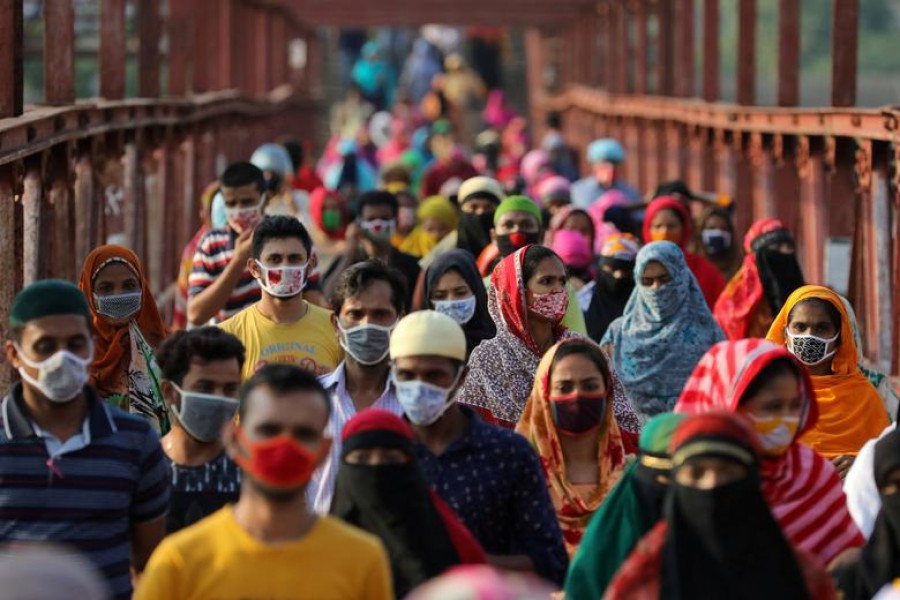About 70 per cent of retrenched workers have remained unemployed as Bangladesh’s apparel sector is faced with substantial challenges during the Covid-19 pandemic that disrupted production and value chain, according to a latest study.
It pointed out that the readymade garments (RMG) sector also suffered drawbacks such as postponed or cancellation of payments, lower global demand, and increased price competition globally and within the country.
The survey was conducted by the Citizen's Platform for SDGs, Bangladesh, during the first half of June 2021, covering 500 RMG workers’ households in four districts – Dhaka, Chattogram, Gazipur, and Narayangonj.
More than half of the RMG workers experienced reduction in overtime during the first wave compared to pre-Covid-19 period. Overtime was relatively lower during the second wave of the pandemic, the study found.
Average income of RMG workers’ households was 11.4 per cent lower during the survey period compared to pre-Covid-19 period.
The study suggested that an independent mechanism should be developed to continuously monitor the impact of Covid-19 on and support provided to the apparel sector workers
Such mechanism will contribute to their bargaining power with the entrepreneurs and government, the study added.
This study, styled “Dealing with the aftermath of Covid-19 Adjustments and Adaptation Efforts of the Apparel Workers in Bangladesh”, seeks to understand the Covid-19 pandemic-induced impacts on the RMG workers and their households. Past studies largely focused on the enterprise level.
The study draws attention to the adjustments and adaptations the RMG workers had to make during the period.
Nearly 52.1 per cent of RMG workers’ households faced financial hardship, mainly difficulties in running households while 35.2 per cent living by themselves faced a similar situation, it found.
The second wave brought additional hardship as nearly 32.8 per cent workers living with family faced further decline in household income while 22.5 per cent faced additional hardship, the survey showed.
During the first wave, two-thirds of the workers did not receive salaries on time, the survey added.


